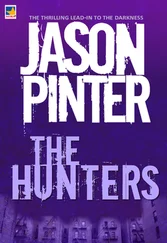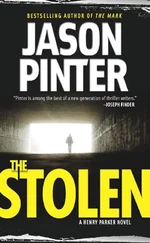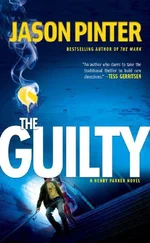In vain.
Father forgot everything: he forgot the package, he forgot the Underground, he forgot the sufferings of our people, and he forgot those who rise up against us in every generation to annihilate us; he forgot my mother and me. He was transported to unimaginable heights of missionary ecstasy: If he could only manage finally to convince the British, who were a fundamentally civilized and moral people, that we, their subjects suffering here in a far-flung corner of the Empire, are really wonderful, cultured, civilized, book-reading, poetry- and philosophy-loving people, then at once they would undergo a change of heart and all the misunderstandings would be removed. Then at last both they and we would be free to sit face to face and talk to one another properly about things that were, when all was said and done, the meaning and purpose of life.
Once or twice the officer tried to get a word in edgewise, to ask a question, or perhaps only to take his leave and get on with doing his duty, but no force in the world could halt Father in full spate: blind and deaf to the world, he continued with the ardor of a zealot revealing the treasures of his shrine.
The thin officer could only murmur from time to time "Indeed" or "How very interesting," as though he was under a spell. The two soldiers began to whisper to each other. The burned one stared foolishly at my mother. His friend chuckled and scratched himself Mother, for her part, had seized the hem of the curtain and her fingers were moving desperately from one pleat to the next, straightening, kneading, stretching each pleat separately.
How about me?
My duty was to find some secret way of warning Father, who was gradually drawing the British officer toward the deadly shelf. But how could I? All I was able to do was at least not to look in the direction it was better not to look. Suddenly the brown paper package succumbed to an urge to turn traitor: it started to make itself conspicuous, to stand out in the row of books, like a fang among milk teeth, looking out of place and different from the others in color, height, and thickness.
Seduction suddenly took hold of me again. As happens to me sometimes in Mr. Zerubbabel Gihon's thunderous Bible lessons, when it starts with a little sensation in my chest, a tickle in my throat, nothing to speak of, it stirs and stops and stirs again and starts to get stronger and press against the sluice gates; in vain I try to last another minute, another second, press my lips together, clench my teeth, tense my muscles, but the laughter bursts out like a cascade, gushes out, so that I have to rush out of the classroom. The same thing happened that morning of the search, only it was not a tickle of laughter, but a tickle of betrayal. Seduction.
Just as when you feel a sneeze coming, and it starts by trickling out of your brain and pinching the base of your nose till it brings tears to your eyes, and even if you try to smother it, it's obvious that you haven't got a hope, that it's bound to happen. Just so I started to guide the enemy toward the package that the Underground had asked us to hide, the package that apparently contained the detonation device of the Hebrew atom bomb, which had the potential to liberate us now and for all time from the destiny of being forever defenseless lambs at the mercy of wolves.
"Quite warm," I said.
Then:
"Very warm." "Cooler." "Lukewarm." "Colder again." "Freezing."
And a little later:
"Getting warmer. Warmer. Hot. Nearly burning."
I can't explain it. Even today. It may have been a vague wish that the thing that was bound to happen should finally happen. And stop hanging like a rock above our heads. Like having a wisdom tooth extracted: let's get it over with.
Because it's unbearable.
Nevertheless, my sense of responsibility got the better of me. I didn't say my hot and cold out loud, but only inside, behind my sealed lips.
The English officer gently deposited on the coffee table the mountain of books that had been piled in his arms and almost reached his chin. He thanked Father twice, apologized again to my mother for the unpleasantness and the nuisance, and rebuked in a whisper one of the soldiers who was touching a wall map with his finger. As they were leaving, when they were through the door but it had not yet closed behind them, he turned to look at me, and suddenly he gave me a wink, as if to say:
Well, what can we do?
And off they went.
Two days later the general curfew was canceled and once again there was only a night curfew. The rumor went around the neighborhood that in Mr. Vitkin's flat, Mr. Vitkin from Barclay's Bank, they had found a pistol magazine full of bullets. They said he was taken off in handcuffs to the Russian Compound. And the brown paper package disappeared from among the gems of world literature after a couple of days. It had evaporated. There was no gap on the shelf. As if it had all been a dream.
I have already explained about the locked medicine drawer and my mother's role in the Underground. During the night curfew, when I was awakened by shooting or the rumble of an explosion, I would sometimes try not to fall asleep again even when silence returned. Tensely I lay there hoping to catch the sound of hurried footfalls on the sidewalk outside my window, a scratching at the door, whispered voices in the hallway, groans of pain stifled by clenched teeth. It was my duty not to know who had been injured. Not to see, not to hear a thing, not even to try to imagine the spare mattress being spread out on the kitchen floor in the night, only to disappear before day dawned.
All that summer I waited. No wounded fighter ever came.
Four days before the end of the summer holidays, before I started the seventh grade, my parents went to Tel Aviv to take part in a memorial evening for the town they had come from.
My mother said:
"Listen carefully. Yardena has offered to spend the night here to look after you because we are sleeping over in Tel Aviv. Be as good as gold. Don't be a nuisance. Help Yardena. Eat what's put on your plate; don't forget there are dead children in the world who would have lived for another week if they had only had the food you leave on your plate."
There's a pit inside the stomach that science hasn't discovered yet, and all the blood drained into that pit from my head, my heart, my knees, and turned into an ocean and roared like the ocean.
I summoned up what was left of my voice and answered, folding the newspaper that was lying on the table into two, four, eight:
"It'll be fine. You go."
And I tried to fold it in half again but I couldn't.
The question I was asking myself as I folded the paper was whether science had discovered, and if not whether I myself could discover within the next couple of hours, a way of making someone disappear without trace for twenty-four hours or so. Vanish completely. Not exist. Not just to be vacant, like, say, the spaces between the stars, but to vanish and yet to go on being here, to see and hear everything. To be me and also a shadow. Be present without being present.
Because what was I going to do alone with Yardena? What could I do about my shame? And in our home, too? Should I ask her to forgive me? Before or after finding out (how can you find out, fool?) whether or not she looked out and noticed somebody watching her from the roof on the opposite side of the street? And if she did, whether she noticed who it was? Did I really have to confess? And if so, how could I convince her that it was just an accident? That I really didn't see anything. That I definitely wasn't the notorious peeping torn who had been seen on the roofs in our neighborhood and people talked about in whispers and had been trying to catch without success for several months now. And that when I saw her (only once! only for about ten seconds!) I wasn't thinking about her body but the schemes of the British occupier? That it was just an accident? (What was? What did I see? Nothing. A dark patch, a bright patch, another dark patch.) Perhaps I should tell her a lie? What lie? How? And what about the thoughts I'd had about her since then?
Читать дальше












